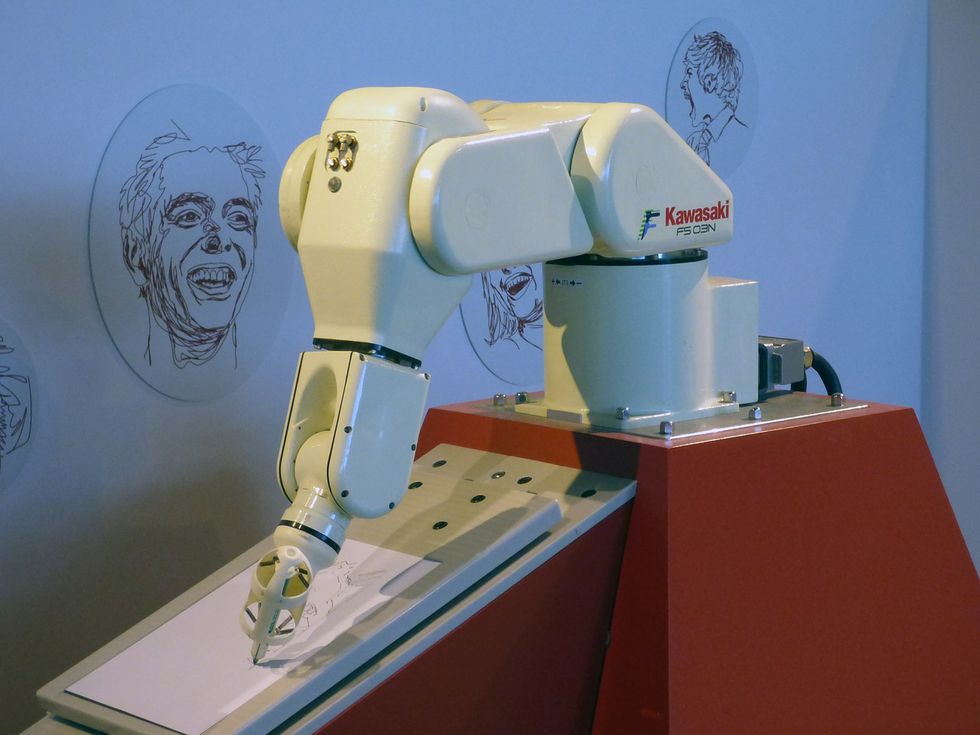Boston Dynamics is a robotics company driven to innovate robots using "sensor-based controls and computation," according to their website. On February 12, 2018, Boston Dynamics posted a video of their latest progress with their SpotMini robot opening a door for another.
When I saw this video, I was in awe and felt a great surge of hope for the future. However, when I got on Twitter, many people were afraid.
Boston Dynamics is going to be the end of us all, and the last remaining humans will be wondering how we didn't see it coming. https://t.co/hYHNqTC6BZ
— nick wright (@getnickwright) February 12, 2018
And this is how the #robot #Apocalypse began, with door-opening #dog robots.https://t.co/8cyppuDJAj
— Andrew Dunn (@AndrewDunn10) February 13, 2018
we are all going to die pic.twitter.com/fAUyR2S9hX
— brad esposito (@braddybb) February 12, 2018
Though for most, the robot reminded them of an episode of Black Mirror, where dog-like robots hunt and exterminate humans. Heres the trailer for that episode:
I hope this attitude towards robots is more of a meme and less stirring suspicion over new, beautiful tech. I found this public opinion quite ill-informed, though I do not believe those that expressed fear are in the wrong.
Boston Dynamics is funded in part by the US Military. While these robots can be used for warfare, their practical use is far more commercialized.
Applying Ethics to Robotics
There is a lot to be said about how robots should be treated and even if we should restrict them from complete intelligence. The philosophy of robotics is not something the likes of Aristotle or Descartes would have ever had thought of. They simply did not believe such a thing possible. They believed intelligence was something given by God, not replicable.
However, perennial philosophy is flawed in that it does not portray an accurate model of the human. Humans do not have ethereal parts. We do not have souls. We have organic circuitry and neural networks that do all of the cognition and thinking.
Our "mind" is simply a metaphor for our brain. As we learn more about the brain and how it creates thought, we can apply this to AI. Perhaps all of cognition is just a complex algorithm. All we need is the code hidden within.
So if we create robots, where is the line drawn before we need to secure civil liberties for their kind? This is not so convoluted as it may seem. There are two things of importance when we talk about robots: intelligence and sentience.
Not many know that sentience is completely different from intelligence. Sentience is simply the ability to feel. Intelligence is the ability to think. We have been able to achieve rudimentary intelligence in AI, but we have never been able to actually replicate the ability to feel. Sensors are not enough to give robots sentience. They need authentic emotions.
If a robot is built for a specific purpose, say for an assembly line, they may be given sensors, but they are following specific algorithms. They are not sentient nor intelligent, thus they do not get rights. They are as humanoid as a lever or pulley. A lever or pulley isn't restricted to 40-hour work weeks.
. . .
The upbringing of sophisticated robots should not be something that scares people, but of course, it does. The thought of a superior species to us humans is something we aren't used to being such a reality. Programming is one of the most secure jobs because no programmer wants to write code that will replace their job. So I do not see our kind stooping to such lows as to create such beautiful machines and allowing them the full range of intelligence and sentience.



















